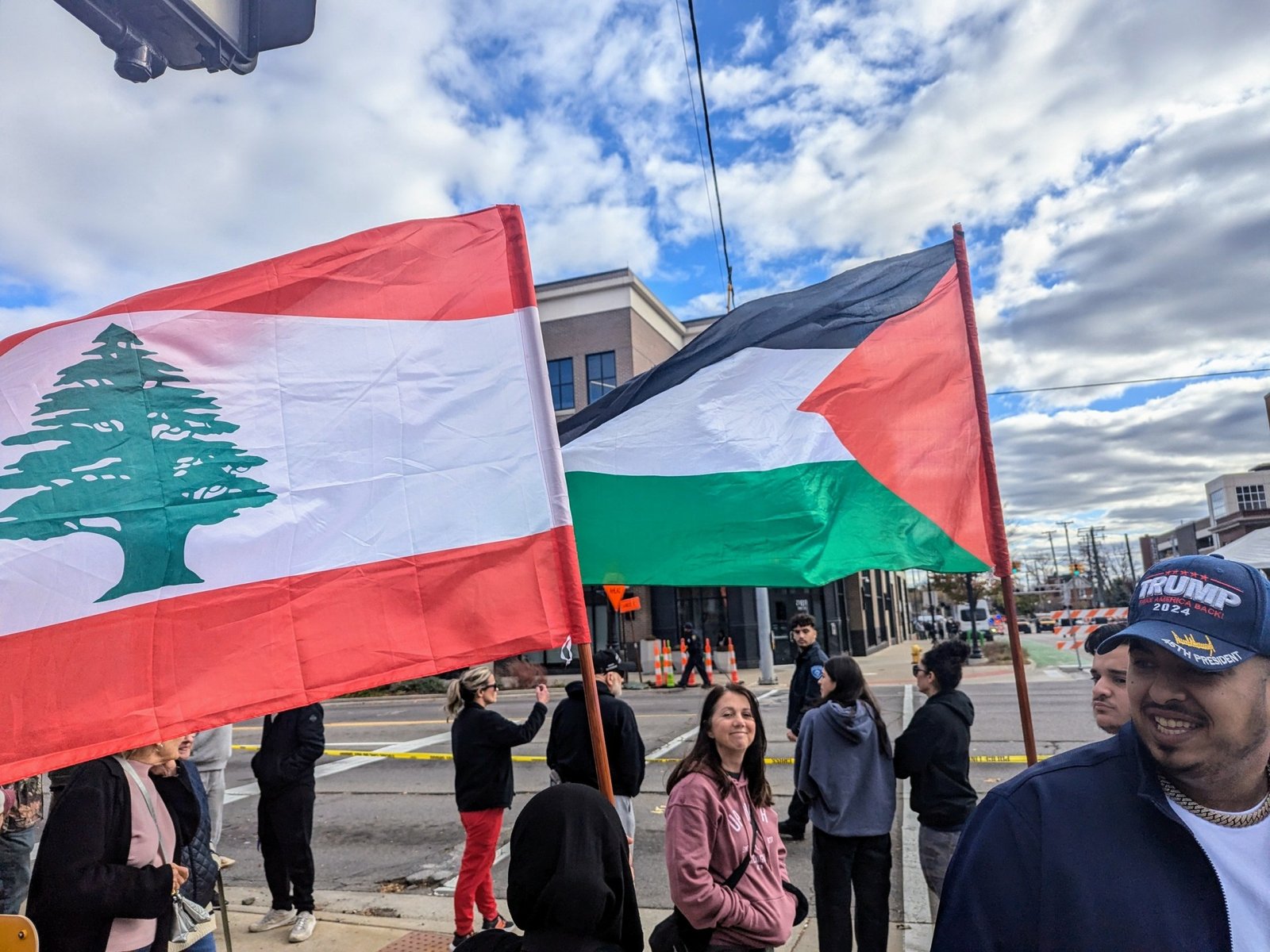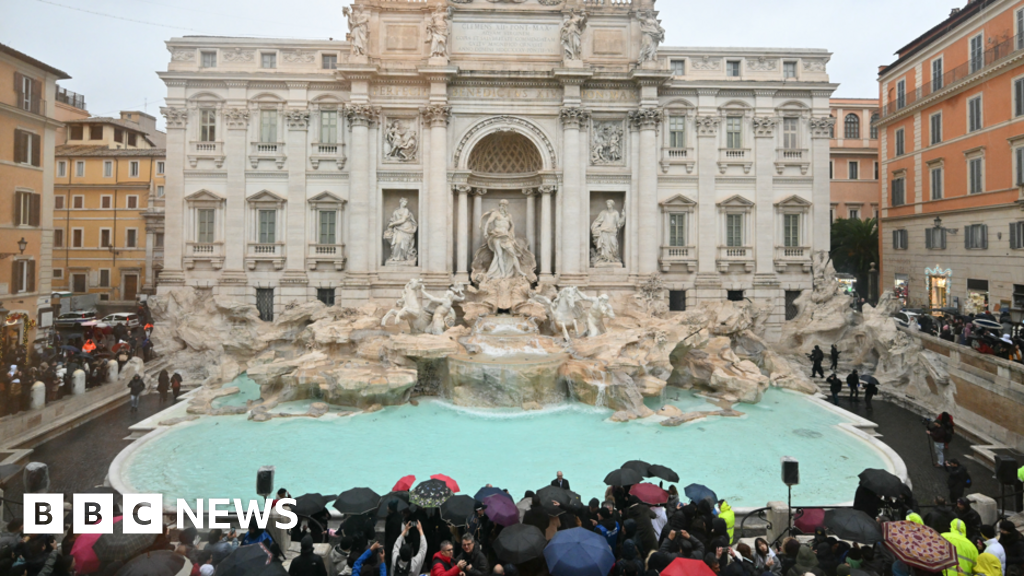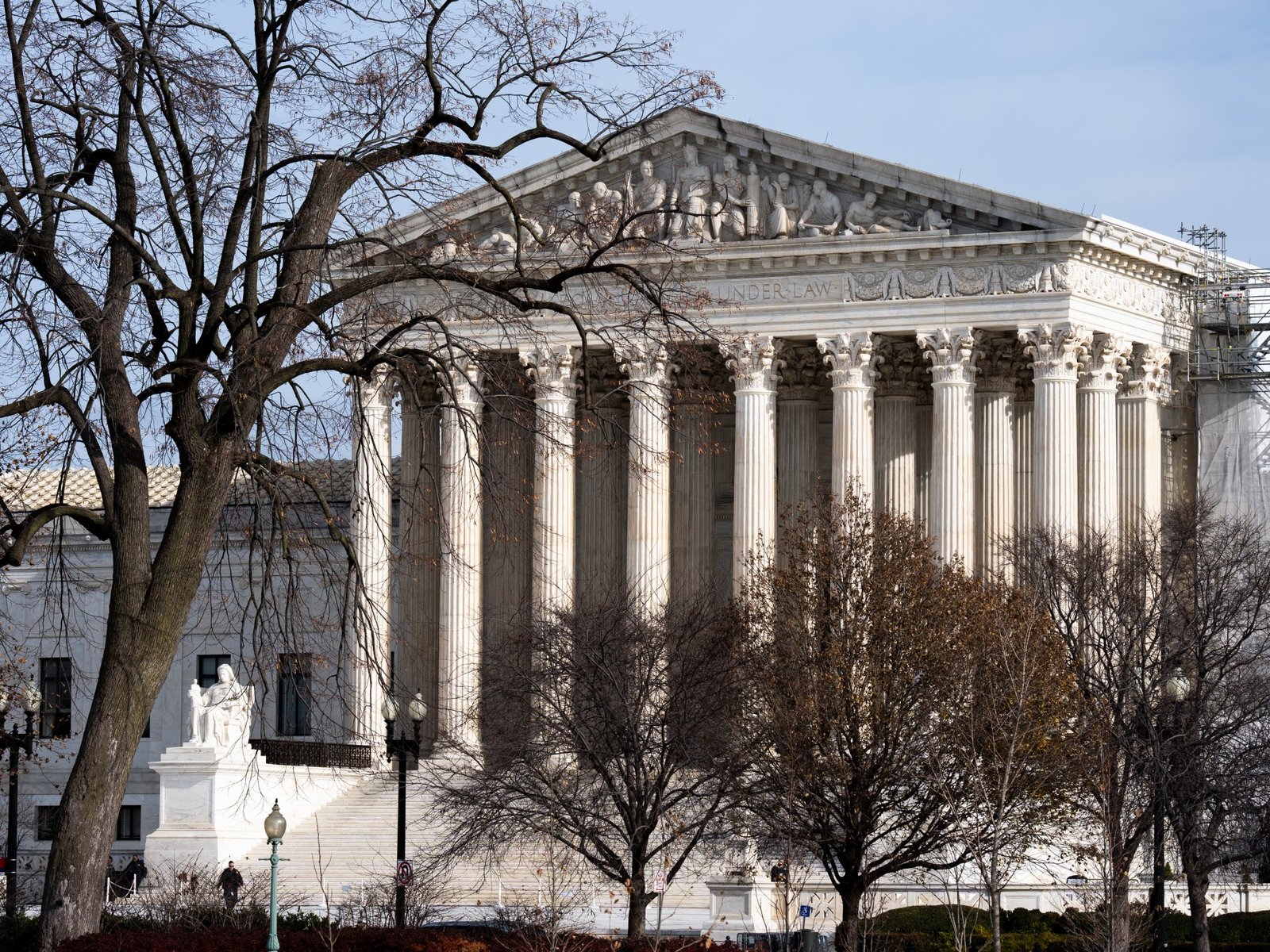Dearborn, Michigan – For more than a year, Layla Elabed says she and other Arab Americans have been at a “collective funeral”.
“We’re grieving. We’re frustrated. We’re angry. We’re heartbroken. We feel betrayed,” Elabed said, finally taking a breath as she reflected on Israel’s raging wars on Gaza and Lebanon.
And now, with bombs still raining down, she added that Arab American voters were being asked to hit pause their sorrow and cast a ballot on Tuesday for presidential candidates who do not have a plan “to stop the killing”.
It is a sentiment that reverberates across the large Arab American community in the battleground state of Michigan, where Elabed has been a leader in the Uncommitted Movement, which has aimed to pressure United States President Joe Biden and his vice president and Democratic contender, Kamala Harris, to end their unwavering support for Israel.
Harris has promised to continue arming Israel while her Republican rival, Donald Trump, has a staunchly pro-Israel record despite his claims of wanting to bring “peace” to the region.
Draped in a scarf featuring Palestinian embroidery, known as “tatreez”, Elabed told Al Jazeera that she was leaving the top of the ticket blank.
“I’m skipping it because neither Vice President Harris nor Donald Trump has adopted a policy that clearly says the bombs are going to stop,” said the Detroit area resident, who is a mother of three and the 12th of 14 children of Palestinian immigrants.
Other Arab Americans, however, are making different choices.
Some are backing Harris, arguing that despite her pledge to sustain the flow of US weapons to Israel, the Democrat remains a better choice than Trump on domestic and foreign policy.
Others see Trump’s unpredictability and self-proclaimed status as an antiwar candidate as an opportunity to break away from the Democratic Party and penalise Harris.
Elabed belongs to the third camp: those who argue that neither candidate deserves the community’s votes.
But even within that approach, there are divisions. Some are calling for skipping the presidential race altogether, while others are campaigning for Green Party candidate Jill Stein.
‘We need to respect ourselves’
Overall, however, there seems to be little enthusiasm across the board, underscoring the dilemma Arab Americans face as they struggle to agree on a strategy that could help influence the election and end the US-backed Israeli wars, which have so far killed more than 43,000 people in Gaza and nearly 3,000 in Lebanon.
Alissa Hakim, a Lebanese American university graduate, said she has “no hope whatsoever” about the vote.
Hakim in 2020 cast her first-ever vote in a presidential election, voting for Biden who she believed would be better than Trump. But after four years and a war that many experts have described as a genocide, the 22-year-old said she firmly rejected the “lesser of two evils” argument.
“There’s been such a low bar for our presidential candidates that you want us to vote for you just because you’re not the other person,” said Hakim, sitting in a Yemeni coffee shop with a laptop featuring stickers of the map of historic Palestine.
“It’s made me realise, we need to respect ourselves more than to just sell our vote to whoever says the nicer words,” she told Al Jazeera.

While Hakim remains undecided, she said her vote would certainly not go for either Trump or Harris.
In Dearborn, a city of 110,000 people known as the Capital of Arab America, both major campaigns are trying to reach out in various ways but their efforts do not appear to be producing a decisive outcome.
With Election Day approaching, Al Jazeera surveyed dozens of residential neighbourhoods in the heavily Arab east side of the city. Signs for school board candidates and Lebanese and Palestinian flags far outnumbered signs for the two major presidential hopefuls.
Biden won more than 80 percent of the votes in predominantly Arab precincts in Dearborn in 2020, according to the city’s election data, helping him win Michigan.
This time, however, Harris is facing an uphill battle in the local community. Even Arab Americans who backed the Democrat in interviews with Al Jazeera have voiced frustration with her positions and acknowledged her campaign’s shortcomings.
Last week, former President Bill Clinton said at a Harris rally in Michigan that Hamas “forces” Israel to kill civilians. He also suggested that Zionism predated Islam in comments that stirred outrage among Arab and Muslim groups.
Harris has also refused to meet advocates from the Uncommitted Movement after her campaign rejected the group’s demand to allow a speech by a Palestinian representative at the Democratic National Convention in Chicago in August.
At a campaign stop in Michigan on Sunday, Harris was asked if she had a closing case to make to Arab Americans. She said she hoped “to earn” the votes of the community and repeated her position about the “need to end the war” on Gaza and secure the release of dozens of people held captive in the besieged territory.
‘Tough pill to swallow’
Ali Dagher, a local Democratic activist who signed a letter by prominent Arab Americans endorsing Harris, said the community was in “shock” and “deep depression” over the carnage in Gaza and Lebanon.
Dagher told Al Jazeera that endorsing Harris was done in partnership with other groups, including civil rights advocates and labour organisations that see Trump as a threat.
“Another presidency under Donald Trump would be a greater danger, not just on international policy… but also on a domestic level – about human rights, about civil rights, about the environment,” Dagher said.

He acknowledged that voting for Harris was a “very tough pill to swallow”, but said the decision was made on the premise that Arab American Democrats would work with their allies to push her to shift US policy on Israel and Palestine.
Some Arab Americans, however, advocate for a divorce from the Democrats altogether, arguing that working within the party’s system has proven futile.
“You do not do the same thing over and over and expect different results,” Hamtramck Mayor Amer Ghalib said at an Al Jazeera town hall in Dearborn earlier this week.
Ghalib, one of the local Arab American officials to have endorsed Trump, said he had opened the channels of communications before the war broke out in an attempt to end the disconnect with the Republican Party after years of political engagement with the Democrats only.
Arab Americans were not always considered a Democrat-leaning constituency. Many Arab voters in the Detroit area backed Republican President George W Bush in 2000. But the 2003 US-led war on Iraq and the so-called “war on terror” shifted the community’s support to the Democratic Party – and not just on the presidential level.
Numerous Arab American politicians in southeast Michigan have been elected to public office as Democrats, including Congresswoman Rashida Tlaib as well as several county commissioners and state lawmakers.
But those same Democratic officials, including Tlaib and Dearborn Mayor Abdullah Hammoud, who have both served in Michigan’s House of Representatives, have refused to publicly back Harris over the war – signalling yet another shift.
Campaigns target Arab voters
Harris has welcomed the endorsement of Republican former Vice President Dick Cheney – an architect of the post-9/11 era that drove Arab Americans to the Democrats – and campaigned with his daughter, Liz Cheney.
That embrace did not sit well with many in the area, and Republicans are trying to capitalise on that discontent.
“Kamala is campaigning with Muslim-hating warmonger Liz Cheney, who wants to invade practically every Muslim country on the planet,” Trump said at a rally in Michigan in October. “And let me tell you, the Muslims of our country, they see it and they know it.”
A Republican-linked campaign has been aggressively targeting Arab Americans in Michigan with advertisements and text messages highlighting Harris’s ties to the Cheneys as well as her pro-Israel record.
“I’m a volunteer helping elect pro-Israel candidates. Our records show you support VP Harris. Thats [sic] great,” a text message sent to Dearborn residents on Sunday read.
“We need her to continue Biden’s policy of sending aid to Israel so they can continue to [stand] up to terrorism in the Middle East. Do you agree?”
Conversely, Emgage PAC – a Muslim political group backing Harris – has sent mailers to voters in the Detroit area underscoring Trump’s pro-Israel policies and his close relationship with Israeli Prime Minister Benjamin Netanyahu.

‘What’s happening is trauma’
Still, faced with “impossible choices”, many voters say they are not convinced by either effort.
As Trump met a group of Arab Americans in Dearborn on Friday, Leila Alamri, a local health professional, brought a Palestinian flag to the gathering outside the Trump event.
She said her message was about Palestinians, not the US election, adding that she would not vote for either of the two major candidates.
“We’re here just to represent the people of Palestine. We’re not here in support of one candidate or the other,” Alamri told Al Jazeera.
Wissam Charafeddine, a local activist backing the Green Party’s Stein, said the community felt humiliated by people in power and faced a “catastrophe” of retreating from the political system.
“What’s happening is trauma,” he told Al Jazeera.
“Every single person living in this area is affected directly somehow from this war – either by a family member or a friend being killed or by a house or property being destroyed. That’s other than the shared trauma of watching a genocide of children and women that’s being committed in front of their eyes on a daily basis.”

















